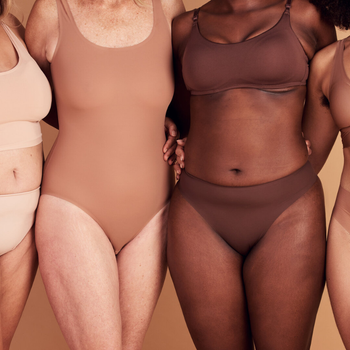One of the most common complaints during menopause is that, for seemingly no reason, women begin to experience a reduction in their sex drive. It can begin during perimenopause and worsen during postmenopause. In fact, in a recent survey of women over 50, less than one quarter was sexually active and only six percent sought help from a healthcare provider. If low libido is something you’re experiencing, or concerned that you might, below are holistic, science-backed approaches you can try to boost your libido during midlife.
Why Does Libido Decrease During Menopause?
As with most side effects of menopause, hormones are often to blame for this one. Specifically, your estrogen levels decrease due to menopause, and your testosterone levels decrease as a result of aging.
There could also be other factors at play, such as certain illnesses, medication side effects, stress, anxiety, obesity, and relationship problems. Also, independent factors like vaginal dryness, depression, and living with children can increase your risk of losing your sex drive.
A more complex reason could be a sexual disorder, such as hyposexual desire disorder (HSDD) or hypoactive sexual interest and arousal disorder (HSIAD). If your libido has disappeared, and it’s something you’re not okay with letting go, it may be time to speak with your doctor.
Here are a few things other women have found helpful that you might try in your own life.
6 Natural, Evidence-Based Ways to Boost Your Libido During Menopause
-
Practice stress management: If you’ve noticed that your stress and anxiety levels are running on high, stress management will help increase your sex drive. This may mean giving your physical activity a boost, making intentional time to relax, and emphasizing self-care. Yoga, meditation, journaling, and talking it out with a friend can help.
-
Combat your fatigue: If you’re feeling worn out, the best fix could be a nap or, better, more extended periods of sleep at night. In other cases, botanical supplements can help. Herbs like Bacopa Monnieri, Korean Ginseng, Maca, and Red Clover have been shown to boost energy in some postmenopausal women and increase libido. Before taking herbal supplements, talk to your doctor to ensure there are no interactions and read up on supplement safety.
-
Boost your testosterone: Talk to your healthcare provider about testosterone and get your hormone levels checked. There is some evidence that certain herbs and minerals can help, such as boron, magnesium, and zinc, although some of the studies did not include women.
-
Focus on improving your relationship: Especially if you feel the quality of your connection has gone down lately. Intentionally make time for conversations alone, regular date nights, and spending more time together outside of the bedroom. Practicing mindfulness is also helpful. Mindfulness in the context of low libido means making the time and space in your brain to think about sex and prepare for sex, declutter the busyness of your life, allowing you to focus on sexual connection. You might also consider exploring sex therapy as a healthy part of this season of your relationship.
-
Eat more fruits and vegetables: Making healthier changes to your diet has a big impact. Good nutrition fuels every aspect of our lives, including things like improving circulation and supporting libido. Reduce or eliminate added sugar and processed foods, and focus on colorful plants, lean proteins, and adequate hydration.
-
Ditch down-there dryness: Vaginal comfort is absolutely essential in boosting and maintaining your desire for sex, so consider directly addressing dryness or pain during intercourse with a hydrating lotion. Kindra's Daily V Lotion, which was shown to reduce pain during sex for 91% of women after just two weeks of use, offers gentle relief, soothing the sensitive tissue. After four weeks of regular application, 73% of vaginal lotion users report "no symptoms" of vaginal dryness—a crucial step toward feeling like your old self in the bedroom.
Daily V Lotion
Of course, if natural approaches don’t work for you, don’t be afraid to talk to your healthcare provider about other options. Decreased libido during menopause isn’t a new symptom, and you’re not the first (or the last) woman to experience it. In fact, many gynecologists say this is the most common question they receive. If it’s causing issues in your personal life, seeking support is the best way to find a solution that works.
Lisa Health combines science, technology, and a holistic view of wellbeing to guide women on their menopause and healthy aging journey and empower them to thrive. Join us on the journey at lisahealth.com.














